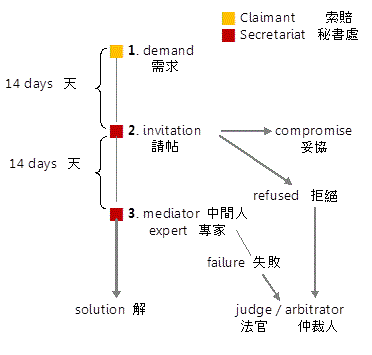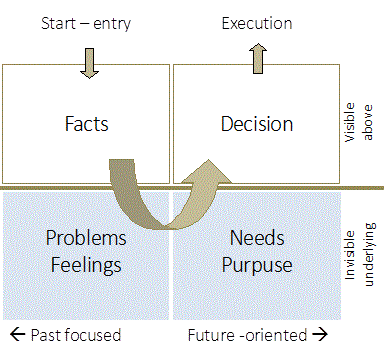 Esta página no existe en español Esta página no existe en españolHome
Conciliation / Mediation
to not reduce the interests to the rights
What’s mediation?
Mediation (after any conciliation) is a method by which a third person listen to the parties and proposes solutions. It can result in a compromise that will enable the parties to avoid a trial.
It preserves the liberty of each party to go to either judge or to an arbitrator.

Advantages of mediation
Mediation causes neither loss of time nor a talmate from which only one party profit. Good mediation is always limited to a reasonably short time. The Institute of Arbitration opts for maximum delay of 1 month.
The mediator often manages discussion according to the diagram below to understand the facts, feelings and purposes of each party. Only after that can the parties agree to a solution and decide who to execute it.

The big advantage of mediation is its low cost.
Mediation also permits solveing litigation that requires discretion.
If a judicial procedure is started suddenly, there is a real risk that one of the parties will dig in to its position and break offs all dialogue.
How to request a mediation?
By simple request, the Institute convenes the parties and designates a mediator.
The mediator has one month to make his/her propositions on the basis of the facts and/or following a decision regarding location.
The odds of succeeding are greater if an arbitration clause binds the parties. In this case there is no advantage to either party to delay the dialogue.
The strength of mediation is that every party maintains the opportunity to claim his/her rights at a court, whether public or arbitral.Neithere party is hostage to the other.
Costs of mediation?
The cost of mediation depends on the type of litigation. In general, simple conciliation is appropriate for financial litigation and mediation is more adapted to technical and/or legal disputes. Expenses in this case are equal, at most, to the half of what arbitration would cost.
| 

 Esta página no existe en español
Esta página no existe en español







